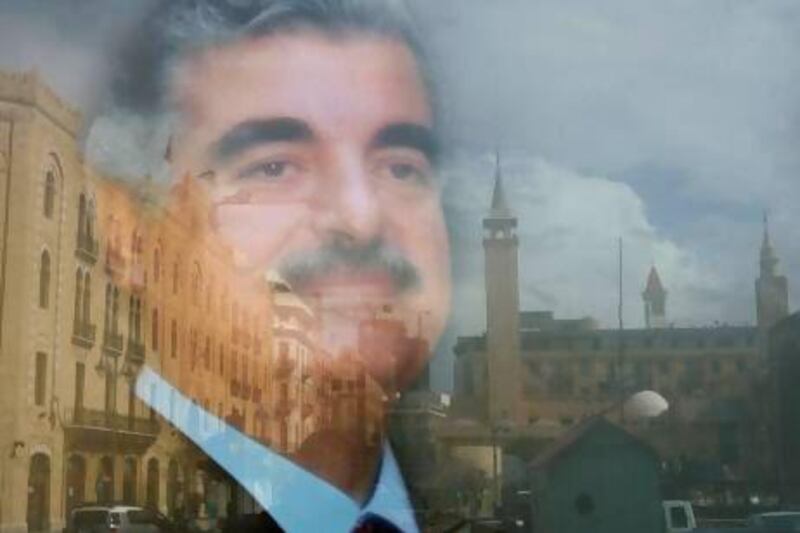The late Lebanese prime minister Rafiq Hariri and Margaret Thatcher had a lot in common. OK, Hariri never took his country to war; crushed the power of the Lebanese unions or helped end the threat of nuclear annihilation, but, like the former British premier, he did make a decent fist of pulling a war-wrecked country up by its bootstraps in the 1990s.
But in rebuilding a bombed-out Beirut and bringing a touch of billionaire bling to our lives, he left himself open to allegations of cronyism, corruption and self-interest, while much of the blame for Lebanon's US$56 billion (Dh205.67bn) debt has been laid at the doorstep of his "build it and they will come" policy.
He was accused of using his wealth and influence to make Lebanon a playground for affluent Arabs. Little wonder therefore then that in the modern Lebanese political debate, Hariri is almost as divisive as Mrs T.
Both came from a humble background- she the grocer's girl from Grantham; Hariri the man from Sidon with a diploma in accounting who went to Saudi Arabia and returned with billions. Thatcher would become the most recognisable stateswoman of her generation, while Hariri, because of the connections his wealth allowed him to forge, won the trust and friendship of the world's most powerful leaders.
Hariri, like Thatcher, put all his chips on black and hoped that investment would breed prosperity. But unlike Thatcher he didn't have a cabinet of genuine technocrats and old school Tories, many of whose formative experiences were shaped by the struggle against Nazi tyranny.
Instead he had to deal with fomer warlords anxious to consolidate power after Lebanon's 15-year civil war. He had to go it alone and bulldoze the mechanics of a state that, had it been given the chance to oversee any regeneration, would have failed.
While Thatcher inherited a country in which litter lay uncollected and the dead unburied, Hariri was asked to lead Lebanon in the autumn of 1992, after the dollar rocketed from 800 Lebanese lira to 3,000 lira in a matter of months, a state of affairs that led to riots on the streets of Beirut. Within a week of Hariri's appointment, the greenback cost 50 per cent less and Hariri rolled up his sleeves to rebuild his beloved country by privatising the reconstruction process, entrusting it to Solidere, a property company in which he was a shareholder and which was created to do the job.
Bombed-out property in the Beirut Central District was expropriated and in return landlords were offered shares in Solidere. There was outrage - a sentiment that many Hariri opponents now say has been vindicated by a less than stellar share price - and to this day there is strong anti-Hariri sentiment among those who feel their land was stolen. This was Hariri's Thatcher moment in the sense that, yes, like the Iron Lady's crushing of the unions, it hurt a lot of ordinary people, pain that is still felt today, but without it Beirut would be a poorer place.
People forget that after the war, much of the property was in the hands of multiple heirs or protected tenants, many of whom were living abroad. But more importantly, any piecemeal development would have made the area an eyesore. The result was a city centre that is today the envy of much of the Arab world and an economy that, when it runs, can purr like a Rolls-Royce. But like a Roller, Hariri's policies reeked of elitism.
When he was murdered in 2005, there were no street parties. A taxi driver who picked me up on Sunday at the Beirut airport that now carries his name, asked me why some people in Britain celebrated Thatcher's death. "They have everything and still they are not happy."
Michael Karam is a freelance writer based in Beirut





